Introduction: A Journey to Wellness
You already know that working out is key when it comes to physique, but have you ever paused to think about the wonders it does for your mind? Fitness isn’t just a journey for the body, but also an incredible adventure for mental wellness. Let’s dive into how breaking a sweat is akin to giving your brain a big, happy hug, and how much of an impact it can have on your mental health!
The Endorphin Effect: Smile While You Sweat
First up, let’s talk about endorphins – our body’s homegrown happy chemicals. When we exercise, our bodies release these magical molecules. It’s like nature’s own brand of mood-lifting, stress-busting medication. According to a study in the ‘Journal of Psychiatry & Neuroscience’, physical activity increases the production of endorphins, leading to what many call the “runner’s high” (Boecker et al., 2008). This natural high not only boosts our mood but also alleviates symptoms of depression and anxiety. So, the next time you’re powering through those squats, remember, you might be just a few reps away from feeling happier!
Stress Be Gone: Wave Goodbye to Worries
When life throws curveballs, our stress levels can skyrocket. But here’s the good news – fitness is a fantastic stress-buster! Engaging in physical activity reduces the body’s stress hormones, such as adrenaline and cortisol, while simultaneously stimulating the production of endorphins (Harvard Health Publishing, 2011). Think of exercise as your personal stress-relief therapist!
Sleep Like a Baby: The Fitness Lullaby
Struggling to catch those Z’s? Fitness might just be your ticket to dreamland. Regular physical activity can significantly improve the quality of your sleep. It helps regulate your circadian rhythm, the body’s internal clock that tells you when it’s time to wake up and when it’s time to hit the sack (Youngstedt, 2005). So, not only do you get to enjoy a productive day, but you also get to enjoy sweet, restorative slumber, which can improve your mental health. It’s a win-win!
Cognitive Clarity: Sharpen Your Mind
Now, let’s jog over to how fitness impacts our cognitive functions. Exercise, especially aerobic activities, has been shown to increase the size of the hippocampus, the brain area involved in learning and memory (Erickson et al., 2011). This means that staying active doesn’t just shape your body; it shapes your brain too. From sharpening memory to boosting creativity, fitness is your brain’s best friend.
Building Confidence: The Inner Strength
Here’s something to flex about – fitness builds not only physical strength but also mental resilience. As you conquer each fitness milestone, your confidence and self-esteem can soar. This sense of accomplishment, of mastering new challenges, translates into a stronger, more positive self-image. You’re not just sculpting muscles; you’re sculpting confidence!
Conclusion: A Happy Mind in a Healthy Body
In conclusion, the connection between fitness and mental health is undeniable. Each step, lift, or stretch is a step towards not just physical but also mental robustness. Remember, your workouts are more than just a path to physical wellness; they’re a journey to mental bliss. So, lace up those sneakers, join us for a Group Fitness Class, and celebrate the incredible power of fitness has in uplifting your mind, body, and soul!
References
- Boecker, H., et al. (2008). The runner’s high: Opioidergic mechanisms in the human brain. Journal of Psychiatry & Neuroscience, 33(5), 411–419.
- Harvard Health Publishing. (2011). Exercising to relax. Harvard Health Letter.
- Youngstedt, S. D. (2005). Effects of exercise on sleep. Clinics in Sports Medicine, 24(2), 355–365, xi.
- Erickson, K. I., et al. (2011). Exercise training increases size of hippocampus and improves memory. Proceedings of the National Academy of Sciences, 108(7), 3017–3022.
- Effects of physical exercise on anxiety, depression, and sensitivity to stress: A unifying theory. Maturitas, (2017).


Recent Comments